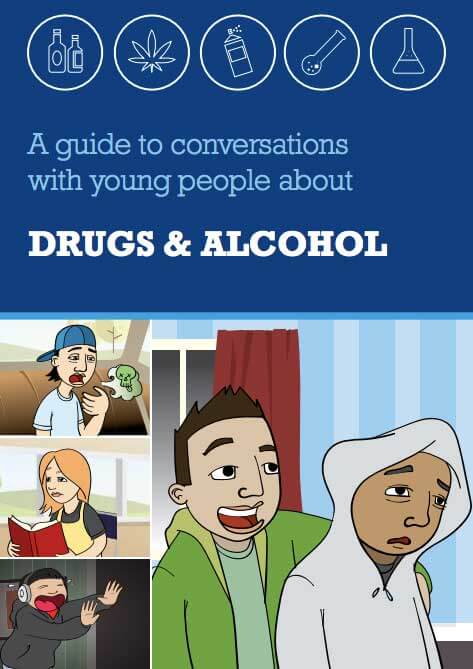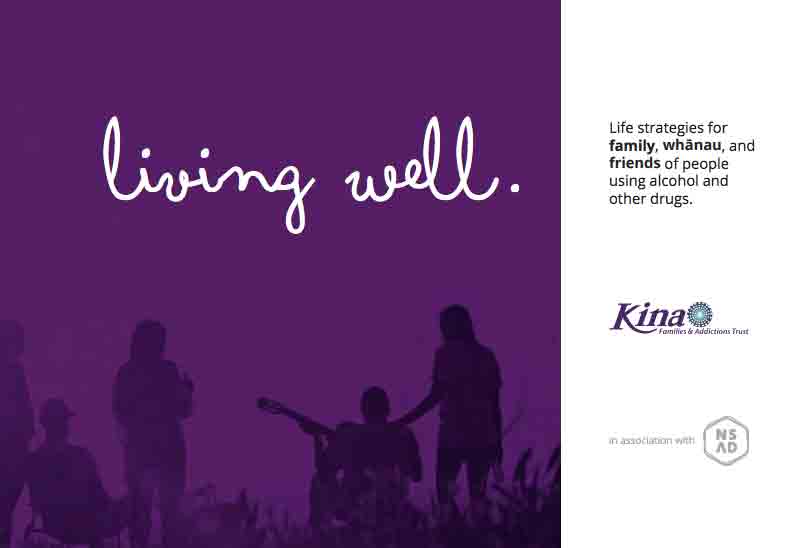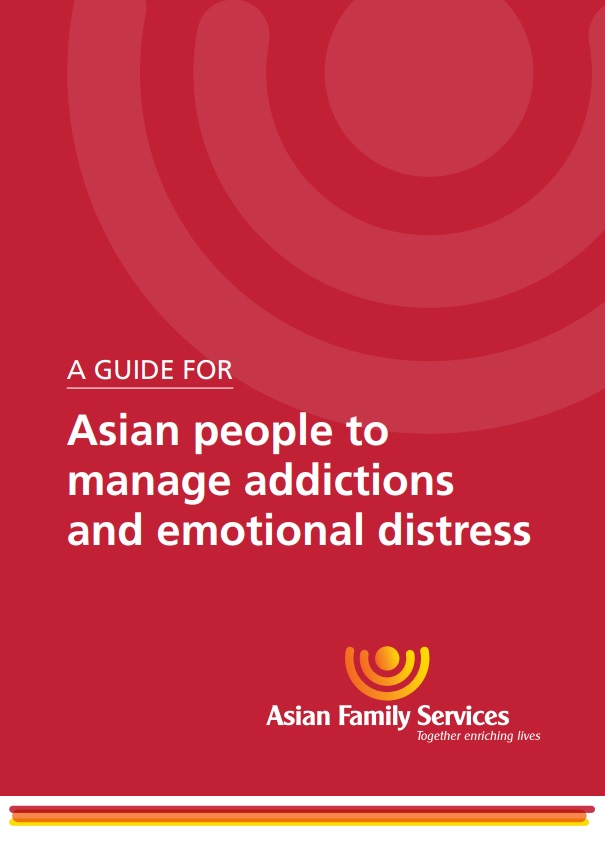If you're a frequent visitor to Healthify, why not share our site with a friend? Don't forget you can also browse Healthify without using your phone data.
Addiction
Also known as dependence
Key points about addiction
- Addiction is when you no longer have control over doing, taking or using something to the point that it is causing harm to you or those around you.
- Addiction is a treatable condition. Recovery is possible.
- Addiction affects the way your brain works, leading to intense cravings for the object of addiction, loss of control over its use, and continuing involvement with it despite negative consequences.
- You can become addicted to many things, especially things that make you feel good or provide some sort of relief.
- Recovery can involve a combination of therapy, medication and lifestyle changes.
- You don’t have to deal with addiction on your own.

The term addiction describes doing/taking/using something even though it causes harm to you or those around you, and you no longer have control over it. Things you use a lot of and all the time (compulsively and obsessively) to ease tension or enhance your mood can become addictive.
Video: How addiction affects the brain
(Dana Foundation, US, 2020)
Common addictions include:
- alcohol
- nicotine – cigarettes and vapes
- methamphetamine (P), cannabis, opioids and other recreational drugs
- prescription medicines (opioids, benzodiazepines and others)
- gambling
- gaming and social media
- work and study
- sex and porn.
Food is also considered by some people to be a source of addiction, but not everyone agrees making it a controversial topic.
Addiction is considered a mental health disorder (classified as substance abuse disorder or SUD in DSM-5(external link)). SUD can vary in severity and be treated similarly to other mental health conditions with therapy, medication and lifestyle changes.
Video: What causes addiction?
(Maudsley NHS, UK, 2012)
There are lots of reasons why addictions begin, including environmental, social, psychological, biological and inherited factors. Addiction can also be associated with other mental health problems.
In the beginning, certain behaviours may seem harmless but over time, harmful patterns of use may develop.
It is thought that the biological processes that cause addiction involve the reward centres in your brain. When your brain finds something pleasurable, it creates a positive memory and affects its neurotransmitters (chemicals). This leads to mental and physical changes that increase your motivation to experience that pleasure again.
If you’re addicted, these changes in your brain create an urge so powerful that you feel driven to recreate the enjoyable high and/or to escape an unpleasant comedown, no matter what the consequences.
Often, you will need more and more to achieve the same effect (known as tolerance), causing the addiction to spiral out of control. Running out of the substance can lead to unpleasant effects such as anxiety, insomnia, sweats and other physical symptoms (known as withdrawals) .
However, addiction can also happen without tolerance or withdrawal, and the presence of tolerance or withdrawal doesn't necessarily mean addiction.
One sign of addiction is a problematic pattern of use that has a negative impact on day to day life.
Choosing to behave, or use a substance, in a way that limits or damages other parts of your life is a sign of addiction.
Addictions are often associated with the following feelings and behaviours:
- craving and fixation
- not being able to stop
- secrecy or denial
- loss of control over the use or behaviour
- increased or excessive use
- withdrawal symptoms
- sacrificing other commitments so you can continue your addiction
- continuing use even though there are negative consequences.
The strain of managing an addiction can seriously damage your work life and relationships.
Find out the level of harm you may be at risk of if you:
- take drugs: How to reflect on your drug use(external link) The Level, NZ
- drink alcohol: Is your drinking okay?(external link) Health New Zealand | Te Whatu Ora, NZ
Addiction is a complicated condition that affects people of all ages, backgrounds and ethnicities. It’s not completely understood what causes some people to be more prone to addiction than others. Usually a number of factors are involved.
An addiction can be a way of blocking out difficult issues.
Some of the factors that are thought to make you more vulnerable to addiction include:
- trauma
- abuse or neglect
- lack of meaningful connection with whānau
- living with or being around addicts
- peer pressure and experimentation
- stress at work, home or school
- financial problems and poverty
- people with a family history of addiction are more likely to develop addictions
- personal past history of substance use problems
- mental or physical illness, or chronic pain
- early exposure – teenagers who begin using any addictive substance before the age of 18 are more likely to develop a substance use disorder than those who are exposed during adulthood.
Overcoming addiction is possible with proper treatment and support. Your treatment plan will depend on the type of addiction.
In general, addiction treatment options include:
- talk therapy
- inpatient rehabilitation
- outpatient treatment programmes
- medication
- support groups
- self-help programs
- lifestyle changes
- therapeutic community living.
Apps reviewed by Healthify
You may find it useful to look at some alcohol use apps, problem gambling apps, and quit smoking apps. There's also a Just a Thought course to help you think about changing your drug and alcohol use.
Recovery means different things to different people. There is no one definition and, like most things, one size doesn’t fit all. It can be helpful to think of recovery as a process of change as people improve their health (hauora) and wellbeing and work towards reaching their full potential.
Improving your health involves overcoming or managing health conditions and making informed, healthy choices that support all aspects of your hauora including:
- physical (taha tinana)
- mental and emotional (taha hinengaro)
- spiritual (taha wairoa)
- and family/social (taha whānau).
Key things that have been shown to be important
An experienced addiction specialist, Dr Stephen Melemis has identified 5 key 'rules of recovery'. Here's a summary.
- Change your life – as well as stopping using, it's important to create a new way of life that provides support, and makes it easier for you not to use. It might mean avoiding certain places, people or things associated with using. Think of it as an opportunity for change and being happier than you were before.
- Be honest – with yourself and others close to you. It’s common for people to hide their use and the consequences of that use from others. Being open and truthful about your substance use can be difficult but with a network or circle of people you can trust (eg, your whānau, healthcare provider, counsellor, support-group, sponsor) you can start to be honest about what is happening for you. It’s also important to be selective about who you tell and what you tell as some people may not have your best interests at heart. Over time you will find the people you can truly trust to be honest with. Most importantly, be honest with yourself.
- Ask for help – recovery is more likely to be successful if you have the right sort of support along the way. Taking part in a substance abuse programme and joining a self-help group is an effective combination. Actively taking part in a self-help group, such as Alcoholics Anonymous (AA)(external link) or Narcotics Anonymous (NA)(external link) can provide several benefits, it can help you:
- know you're not alone
- hear what the voice of addiction sounds like when other people talk about it
- find out what other people have tried and what coping skills work for them
- know there's a safe place to be where you won't be judged.
- Practice self-care – addiction often comes from the need to escape, relax or reward yourself. It helps to be able to acknowledge this and look for healthier ways to do those things. Guilt about addiction can make you think you don't deserve good things but self-care and being good to yourself is a necessary part of being good to others. It's not selfish to take what you need to care for yourself.
- Self-care (mind-body relaxation) – taking time to learn and practice mind-body relaxation techniques (eg, yoga, progressive muscle relaxation, structured breathing and visualisation) helps to release stress and let go of negative thinking – both of which can lead to substance use. Finding time to relax is an important part of ongoing self-care.
The following may help you in your recovery:
- Attend your medical and therapeutic appointments.
- Create a network of people who can support you while you overcome addiction, including self-help groups.
- Learn about the addiction and its treatment.
- Take any medicines as prescribed and talk to your prescriber before stopping them..
- Healthy diet and exercise.
- Reducing life stressors and learning how to cope with stress to avoid relapse.
- Getting additional addiction treatment help when you need it.
Video: Broken bad – 11 years of meth addiction
(RNZ, 2018)
Video: Addiction and trust: Marc Lewis at TEDxRadboudU
A former drug addict himself, Lewis now researches addiction. In order to get over one's addiction, he explains, self-trust is necessary.
(Tedx Talks, 2013)
You can watch a video called Memo to Self(external link) where Dr. Kevin McCauley re-lives his own early sobriety.
Addiction is a treatable condition. You don’t have to deal with addiction on your own – there are resources, helplines, support groups, websites and counsellors available.
If there's something you find hard to give up or stop doing that is causing any harm to you or others, pick up the phone and ring one of the numbers below. Help and support are just a phone call away.
Alcohol Drug HelpLine(external link) 0800 787 797
Gambling HelpLine NZ(external link) 0800 654 655 (multiple languages)
QuitLine(external link) 0800 778 778
Kina Families & Addictions Trust(external link) Support for family, whānau and friends of people using alcohol and other drugs
Family Mental Health Support Inc South Canterbury(external link) NZ
Community Alcohol and Drug Services Auckland(external link) NZ
Togetherall(external link) UK
See the more information section below.
Straight up drug info(external link) The Level, NZ
Approaches for making changes(external link) The Level, NZ
Methamphetamine(external link) The Level, NZ
How to know if you have an internet addiction and what to do about it(external link) Very Well Mind, US, 2023
Addiction(external link) Very Well Mind, US, 2024
Anxiety and addiction guide(external link) Ocean Recovery Centre, UK, 2023
Drugs, brains, and behavior – the science of addiction(external link) National Institute on Drug Abuse, US, 2018
How addiction hijacks the brain(external link) Harvard Health, US, 2024
Conversation planner for conversations with young people(external link) Drug Foundation, NZ
Brochures
When someone you care about has mental health or addiction problems(external link) Mental Health Commission, NZ, 2010
Alcohol and health – is your drinking okay?(external link) Health New Zealand | Te Whatu Ora, NZ, 2025
Living well – life strategies for family, whānau and friends of people using alcohol and other drugs(external link) Kina, NZ
A guide for Asian people to manage addictions and emotional distress(external link) Asian Family Services, NZ, 2018 English(external link), Chinese(external link), Hindi(external link), Korean(external link)
Apps
Alcohol use apps
Problem gambling apps
Quit smoking apps
Just a Thought – changing your drug and alcohol use
References
- What is addiction?(external link) American Psychiatric Association, US, 2024
- How addiction hijacks the brain(external link) Harvard Health, US, 2024
- Why are certain foods so addictive?(external link) Cleveland Clinic, US, 2021
- Melemis SM. Relapse prevention and the five rules of recovery(external link) Yale J Bio Med. 2015;88(3):325–332
See our page addiction information for healthcare providers.
Brochures

NZ Drug Foundation, 2018

Kina Families & Addictions Trust, NZ
Credits: Healthify editorial team. Healthify is brought to you by Health Navigator Charitable Trust.
Reviewed by: Dr Alistair Dunn, FAChAM, FRNZCGP, Addiction Medicine Specialist and GP
Last reviewed:






